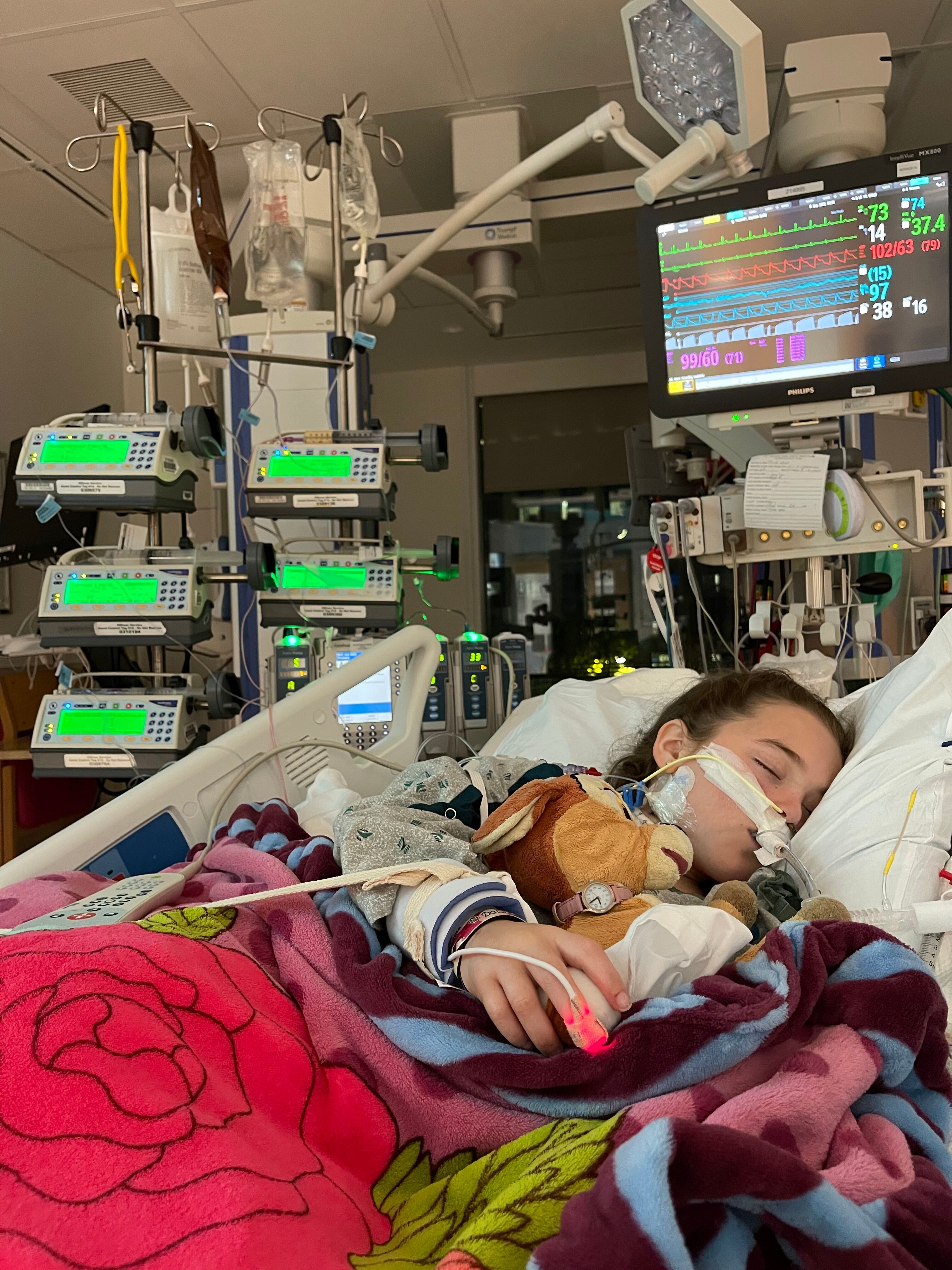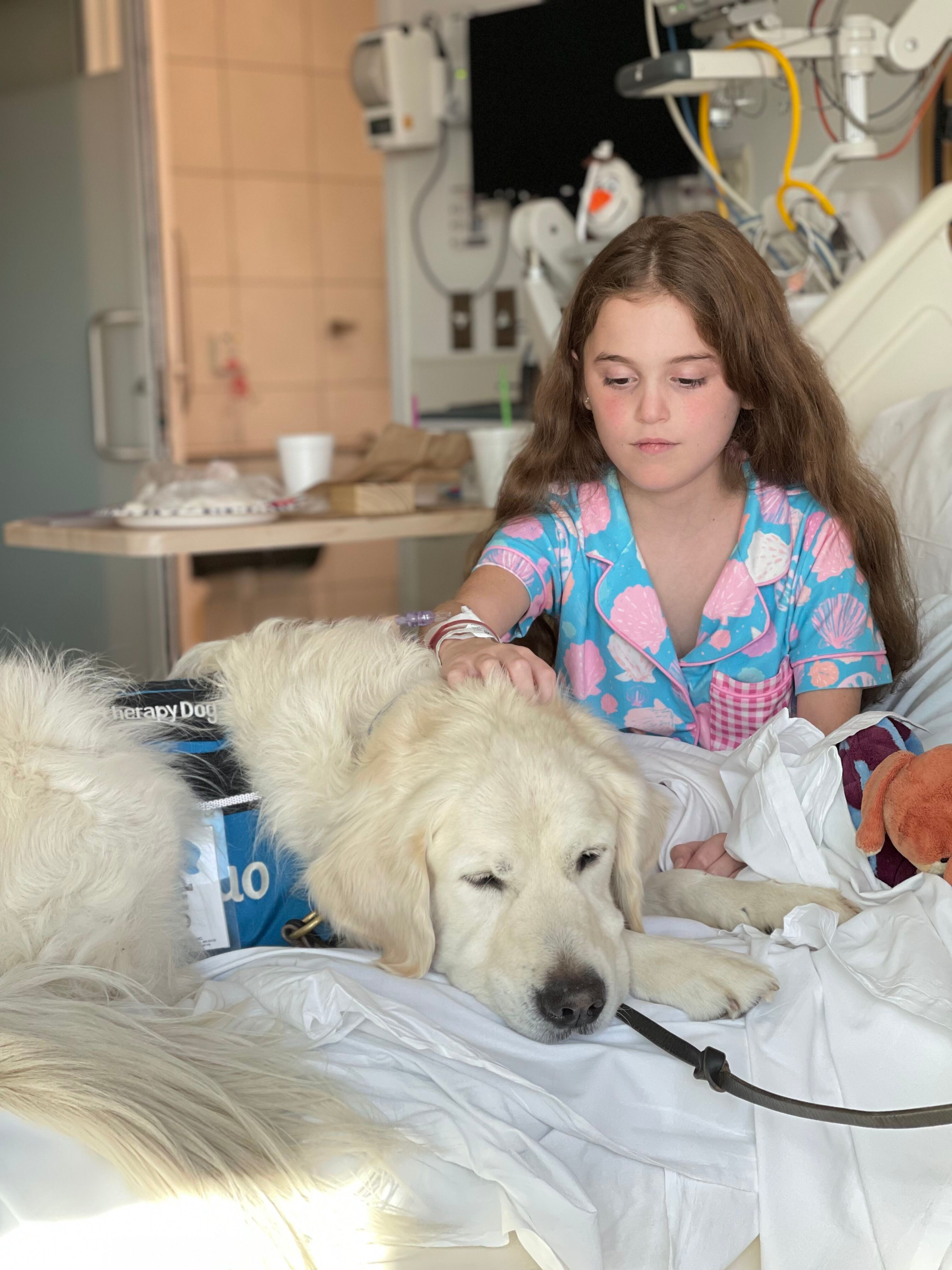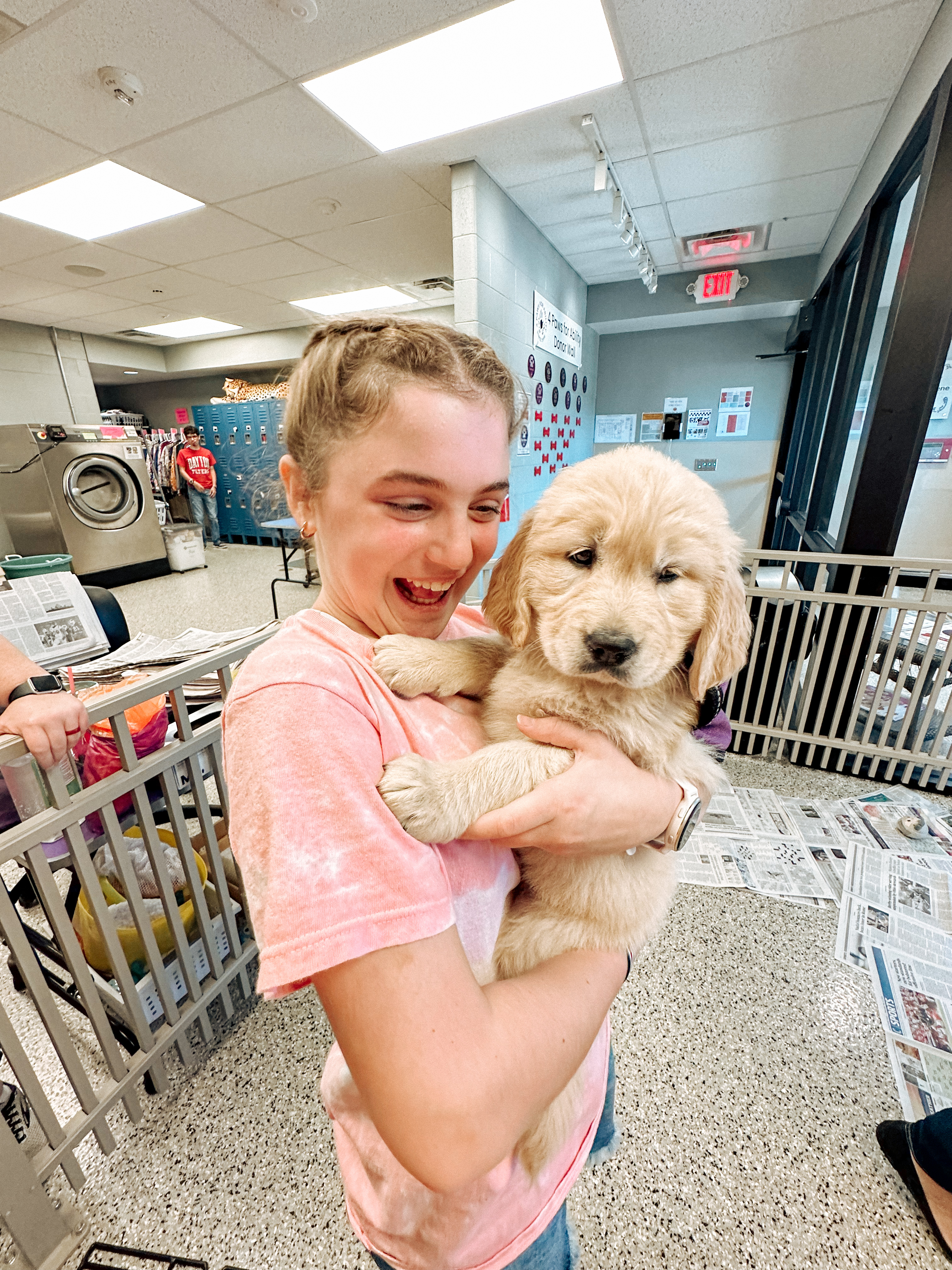Liljana is a spunky tween who loves school, crocheting, and playing Minecraft with her twin brother. She also enjoys playing her beloved cello, for which she has a strong natural talent, and advocating for kids' health as a St. Louis Children's Hospital Champion and Children's Miracle Network Ambassador. However, Liljana hasn't always had the energy to enjoy all these activities. Since birth, her health has been a rollercoaster of allergies, asthma, and colds that would quickly escalate to bronchitis or pneumonia. After repeated illnesses and hospital stays around age 2, Liljana embarked on a long and complicated medical journey that would become her new normal.
 Liljana faced chronic lung, ear, and sinus infections for many years. It was during this time that Liljana's family started a journey to understand a rare genetic condition known as primary ciliary dyskinesia (PCD) and the role it may play in her health. PCD prevents one's body from clearing germs, so her family prioritized keeping her healthy and following therapy plans to help her airway and sinuses remain clear. With her asthma and respiratory health more stable, it seemed that the worst was behind them.
Liljana faced chronic lung, ear, and sinus infections for many years. It was during this time that Liljana's family started a journey to understand a rare genetic condition known as primary ciliary dyskinesia (PCD) and the role it may play in her health. PCD prevents one's body from clearing germs, so her family prioritized keeping her healthy and following therapy plans to help her airway and sinuses remain clear. With her asthma and respiratory health more stable, it seemed that the worst was behind them.
 However, Liljana would always get sicker over the next few years than her brother, but there was no explanation for why. She contracted stomach bugs and would quickly become dehydrated from vomiting or develop low blood sugar. She has even been so sick that she had to be transported to St. Louis Children's via the Mobile Intensive Care Unit from her community hospital. When the same thing happened a few months later, her family became increasingly concerned with how her illnesses would quickly become severe.
However, Liljana would always get sicker over the next few years than her brother, but there was no explanation for why. She contracted stomach bugs and would quickly become dehydrated from vomiting or develop low blood sugar. She has even been so sick that she had to be transported to St. Louis Children's via the Mobile Intensive Care Unit from her community hospital. When the same thing happened a few months later, her family became increasingly concerned with how her illnesses would quickly become severe.

After two years of homeschooling during COVID-19 to keep her safe, Liljana and her brother returned to school for 4th grade in 2022. Despite their best efforts, both kids (age 9) contracted COVID within two weeks at school. The same day that she tested positive, Liljana's fever skyrocketed to a life-threatening 106.5 degrees, and she became very lethargic. I immediately took her to the St. Louis Children's Emergency Department (ED). She managed to walk into the ED on her own, but within a few hours, she became unresponsive, was maxed out on medications to raise her blood pressure, was in shock, and had to be put on a ventilator. She was in the Pediatric Intensive Care Unit (PICU) for almost a week. Liljana's care team assumed her symptoms were a severe reaction to COVID-19.

Surprisingly, a few weeks later, the unimaginable happened — her symptoms returned like deja vu, and Liljana was once again hospitalized. But, this time, she was negative for COVID-19. Liljana was so sick by the time she arrived at St. Louis Children's that she was unable to walk into the ED and was rushed to the PICU... again. The team was determined to discover why this was happening again. After nearly two weeks in the hospital, Liljana was diagnosed with another rare condition called adrenal insufficiency (AI), which is an uncommon condition that occurs when the body doesn't make enough essential hormones such as adrenocorticotropic hormone (ACTH) and cortisol.

Her specific cause of adrenal insufficiency is very rare, but the treatment plan is the same. She takes the cortisol her body lacks as tablets three times a day. Her body needs additional cortisol when fighting illness, being injured, or even experiencing emotional excitement or stress, or she will go back into an adrenal crisis. The condition has no cure, and she will not outgrow it. Her doctors have developed a careful crisis action plan to try and stabilize crises quickly with emergency injections before rushing to the hospital for additional treatment. Liljana has experienced more terrifying adrenal crises and hospitalizations since her diagnosis in October 2002, but she has been able to stay out of the PICU!
Since her diagnosis and beginning treatment, Liljana has grown several inches and gained weight, a sign she is on the right track after years of lagging. Last year, she also completed her first full year of school (5th grade) since kindergarten! Liljana's school administration and peers have been very supportive and understanding of her risks, needs, and fragile health and inspired by her positivity, compassion, and determined work ethic. We would like to do anything possible to let her have as "normal" and independent of a life as possible.
Soon after her diagnosis, we learned about service dogs trained to assist in crises, and some even being able to detect the low cortisol scent and attempt to alert to an impending crisis from a therapy dog handler who visited the hospital. Because her condition is rare, some organizations would not consider her for a service dog. That is when we learned about 4 Paws for Ability and their extraordinary mission.
We have closely followed the organization and were fortunate enough to visit them in July to see all the love and hard work poured into these amazing pups and start the official application process. During this time, she was at school one day, and I got a call that she was absent despite my dropping her off. Parents of a medically complex kid understand the panic that I felt when I explained I know she went in the door two hours prior, and she has a medical condition and could be in a bathroom or something in crisis or worse! This was when I realized a service dog would have been able to alert someone, and I was fully committed to moving forward for her. Fortunately, it was an attendance mistake, and she was accounted for, but neither her school nurse nor I recovered as quickly. The 4 Paws team helped identify specific tasks that a service dog could be trained to assist us with for her care and desire for more independence as she ages.
